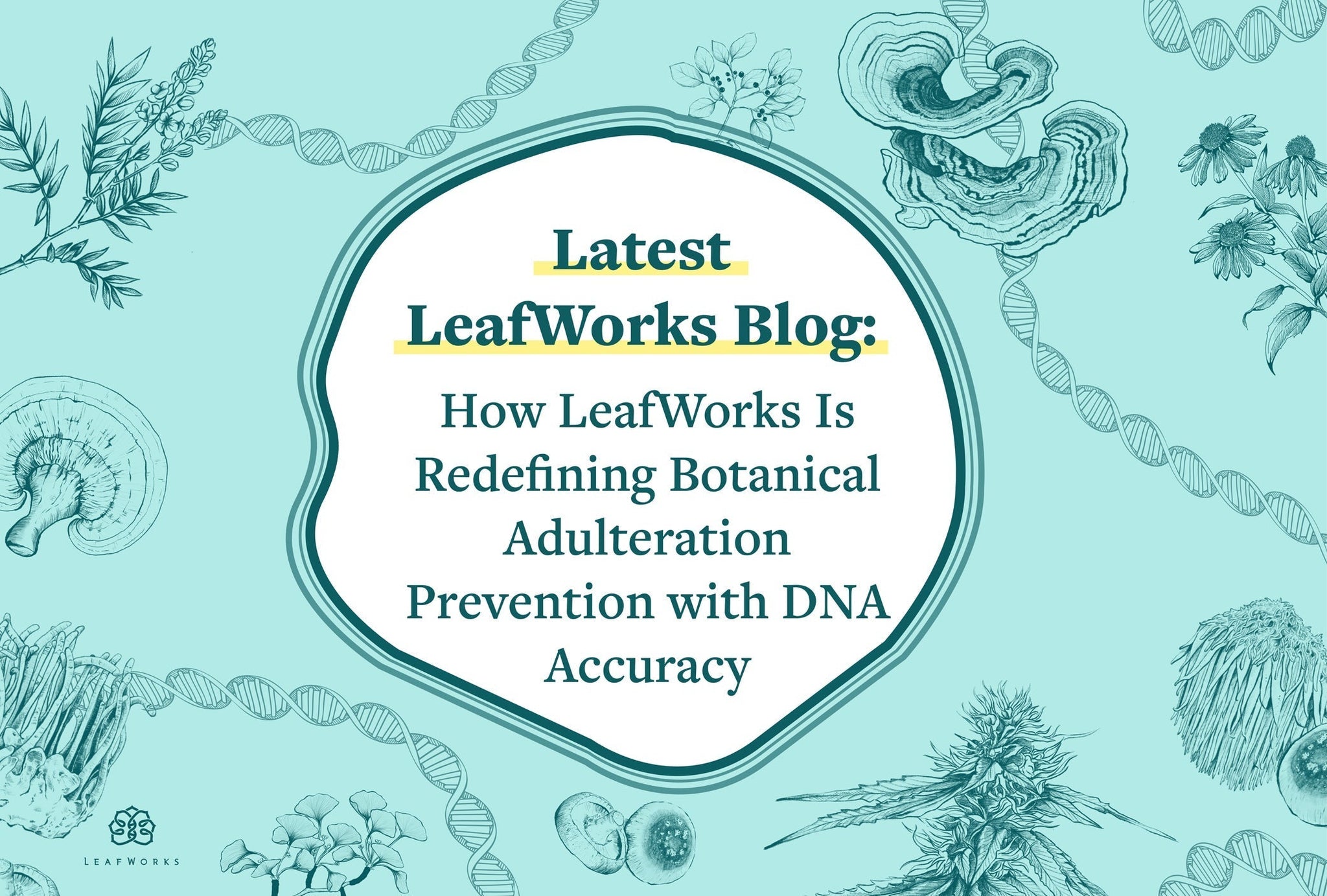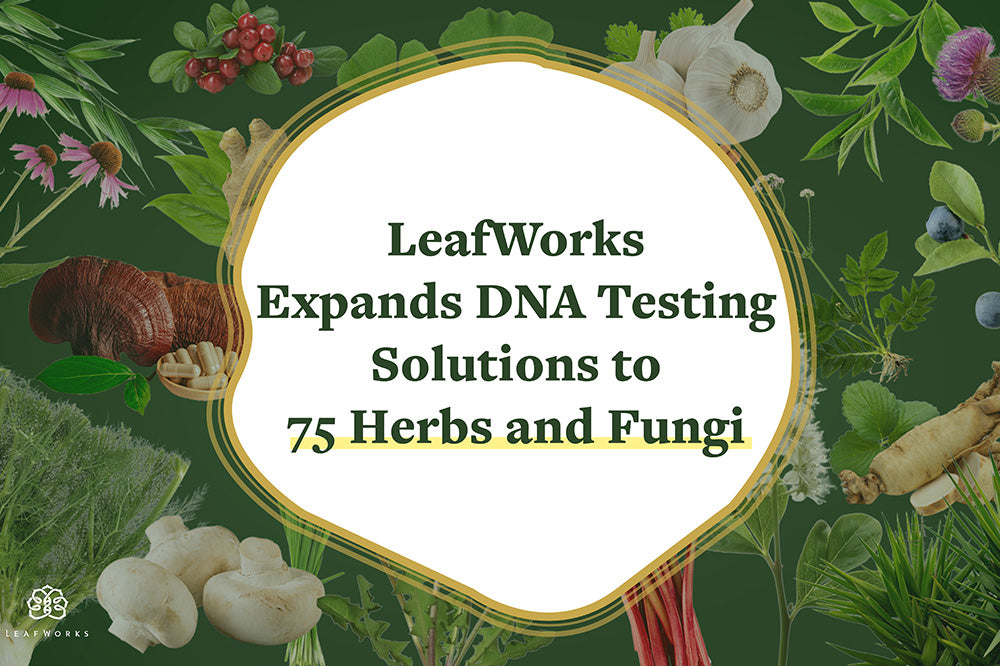
Building DNA Tests With AOAC Principles in Mind
As natural product supply chains grow more complex, the industry’s need for trusted, validated testing methods grows with it. For decades, AOAC’s testing method standards—especially frameworks like AOAC’s Appendix K—have been benchmarks for analytical rigor.
At LeafWorks, we’re committed to that same spirit of scientific integrity, especially as genetics becomes more central to ingredient identification and validation.
Although originally written for chemistry-based methods, AOAC Appendix K’s focus on robust statistical design, reproducibility and appropriate sampling has guided how LeafWorks develops DNA-based species ID tests.
From the beginning, our approach has prioritized specificity, accuracy, precision and robustness—mirroring many of the expectations that AOAC Appendix K sets for validated methods.
Our newest DNA ID assays for functional mushrooms reflect that commitment. These species-specific qPCR tests provide fast, highly accurate identification for six of the most widely used fungi in the supplement industry: Lion’s Mane, Reishi, Chaga, Turkey Tail, Cordyceps and Shiitake.
These assays were purpose-built to set the new genetic standard for reliability and scientific rigor. Each test was developed using authenticated botanical reference materials, have robust inclusivity and exclusivity panels to account for common adulterants and look-alikes, are validated across large collections of diverse global sources and tested in complex matrices—including commercial blends and finished goods.
We look forward to working with AOAC to get these methods certified.
Making Space for Genetics in Method Validation
As DNA testing becomes more accessible, conversations around method validation are expanding.
That’s why we see a growing opportunity to contribute to the evolution of method validation guidelines. From adapting the spirit of AOAC Appendix K to helping shape new frameworks for botanical genomics, LeafWorks is actively working with the AOAC Botanical Ingredients and Dietary Supplement Integrity Program (BIDSI) to make sure DNA parameters are accounted for, and is reaching out to do the same with other standards organizations in an effort to bridge these gaps.
What does AOAC Appendix K look like when applied to species-level identification in botanical supplements using DNA? What happens when genetics is recognized as an equal and orthogonal method for accurate, reproducible results?
These are the questions that drive our work—and that we believe the broader community will benefit from exploring.
Innovation, Inclusion and the Cost of Progress
LeafWorks is proud to take an active role in the 2025 AOAC conference, contributing to multiple roundtables and technical symposiums across the dietary supplement, foods and botanical science tracks. As a startup built on scientific innovation, we bring deep respect for the role standards bodies play in shaping quality and transparency.
We also look forward to having deeper conversations about inclusivity and accessibility of standards organizations for startups and smaller testing companies to make sure novel methods being produced by companies of any size can be included.
Now that our DNA test development pipelines are honed, we can produce ID tests more rapidly. An organization such as ourselves would like to certify, but certification costs can add up significantly. We recognize that certification fees—starting with the $7,000 annual dues even before certification fees start—can be a substantial investment, particularly for early stage companies advancing novel methods.
While formal certification remains a long-term goal, we’ve designed our testing protocols to meet or exceed AOAC expectations, ensuring our clients benefit from trusted, statistically sound tools today, whether we are able to afford immediate certification or not for all of our many methods.
This includes not only our DNA ID tests, but also the development of our upcoming functional fungi quantification assay—a powerful qPCR-based test that provides precise quantification of individual species within complex blends, unlocking a new level of clarity for formulation verification and label accuracy.
As genomic tools become more mainstream, it’s worth considering how innovative, science-first companies—regardless of size—can be supported in bringing those tools to market. The industry stands to benefit when the bar for validation is high, but the pathway to participation remains open.
Conclusion: Building Toward a Shared Future
LeafWorks remains committed to rigorous, science-backed development of DNA tests that support the integrity of the natural products industry. Our work reflects a deep respect for existing frameworks for scientific rigor and a desire to evolve them responsibly, with contributions grounded in data, collaboration and a shared goal: empowering manufacturers, consumers and regulators with tools that work—no matter the molecule.


